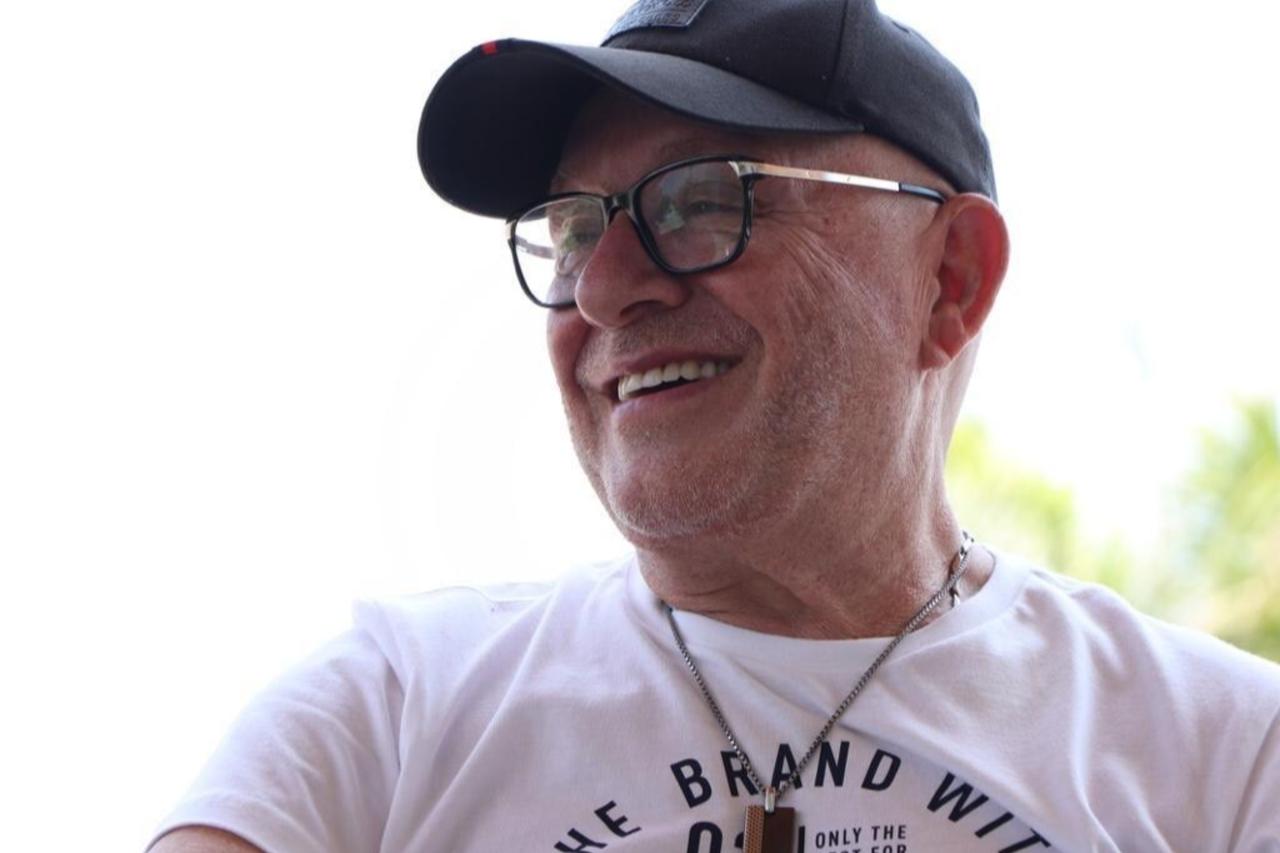
As legal scholars around the world examine what should be done about individuals implicated in crimes of genocide, past precedents are being closely scrutinized. In some cases, simply having served in a foreign military has been enough to brand someone a traitor.
A telling example from Türkiye, dating back to 1977, involves the revocation of citizenship for the Israeli businessman. The ongoing saga of Simon Aykut, born in 1950, continues to grow more complex.
Recently, Aykut, now a citizen of Turkish Cyprus, was arrested in the south of the island along with his son by the Greek administration upon charges of ‘purchasing property in the north.’
Now, the Turkish Republic of Northern Cyprus (TRNC), Türkiye’s close ally, has taken up the defense of Aykut and his rights.
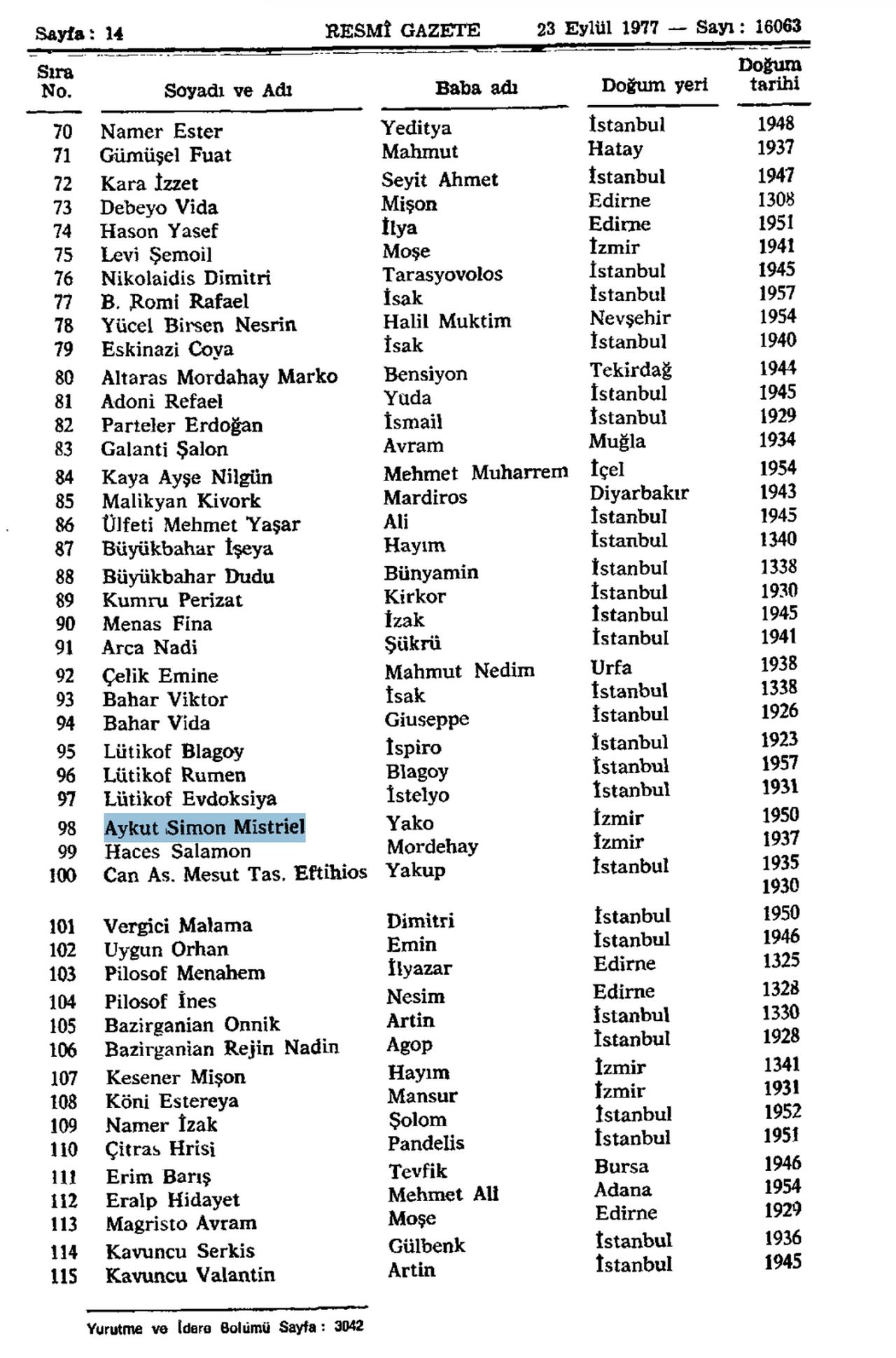
Simon Mistriel Aykut was born in 1950 in Bergama Province, İzmir, western Türkiye, to a Jewish family that, in his own words, has lived in Türkiye for 600 years. His name appeared in the Official Gazette on Sept. 23, 1977, in issue no. 16063, under the section “Loss of Turkish Citizenship.”
He was among those listed as having their nationality revoked by a decision of the Council of Ministers.
The document did not specify the reason in his case, but Turkish law at the time allowed citizenship to be withdrawn if an individual continued to serve a foreign state in roles considered contrary to Türkiye’s national interests despite official warnings, if they voluntarily worked for a state at war with Türkiye without government authorization, or if they carried out military service for a foreign state without permission.
These legal grounds offer possible explanations for Aykut’s loss of Turkish nationality.
Now, some legal experts note that all of these points of provisions could now serve as a precedent for the revocation of Turkish citizenship from individuals of dual nationality who have served in the Israeli military amid ongoing Gaza genocide.
The story doesn’t end there but rather takes another turn. Decades later, in 2013, Aykut, who also holds Israeli citizenship, was granted citizenship in the TRNC by a decision of the Council of Ministers.
After acquiring TRNC nationality, he began large-scale real estate investments, emerging as a prominent figure in the sector.
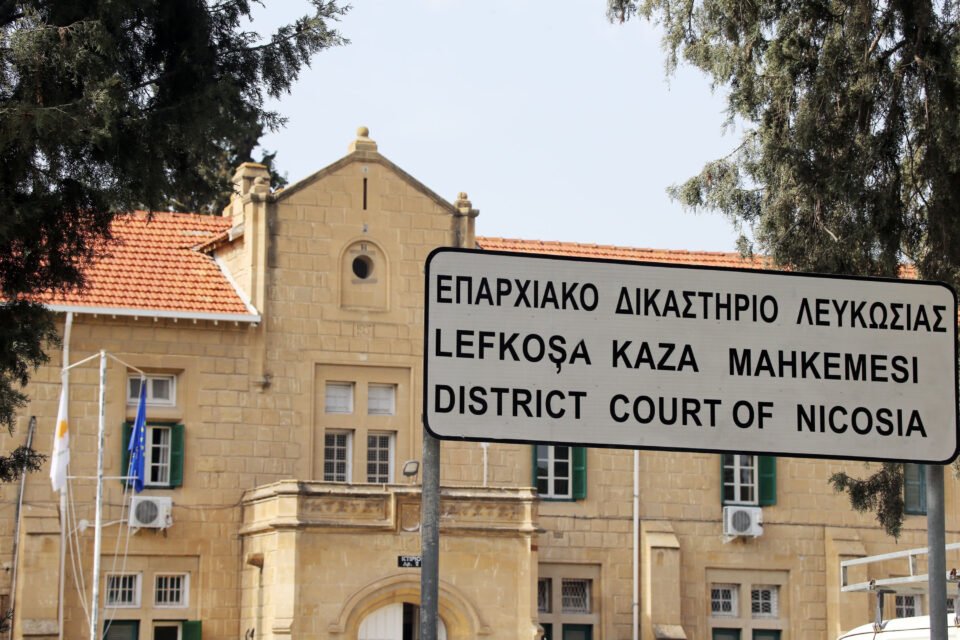
In September 2023, Aykut was detained by the Greek Cypriot Administration (GCA) upon entering the southern part of the island. Greek authorities accused him of illegally developing and selling properties worth tens of millions of euros on land so-called as belonging to displaced Greek Cypriots.
His arrest led Greek Cypriot authorities to expand their investigations to 15 individuals of various nationalities accused of exploiting so-called Greek Cypriot property in the north.
Aykut and three others remain in custody, while inquiries into 12 additional suspects are ongoing.
Greek Cypriot officials claim that land in the north has been unlawfully occupied since 1974, whereas the TRNC views these areas as equivalent to its own.
Under this arrangement, properties in the north that belonged to Greek Cypriots are considered compensation for Turkish Cypriot land left in the south after the 1974 operation.
The TRNC established the Immovable Property Commission (IPC) to manage disputes by offering financial compensation or property swaps to former owners.
The European Court of Human Rights recognizes the IPC as a valid legal mechanism. Despite this, the GCA continues to pursue legal action against those who invest in or purchase property in the north.
The investigations surrounding Aykut also shed light on allegations that property records in the TRNC have been leaked to the Greek Cypriot administration.
Reports suggest that information from TRNC land registry offices occasionally reached southern authorities.
Recently, a clerk at the Girne Land Registry was arrested on charges of providing property information to the south.
Authorities believe the data passed first through a real estate agent before being sold to Greek Cypriot officials. That agent remains in custody.
It is also reported that Greek Cypriot officials disguised as tourists gathered intelligence on real estate in the north.
Additionally, advertising by construction firms in the TRNC serves as an open source of information for investigators in the south.
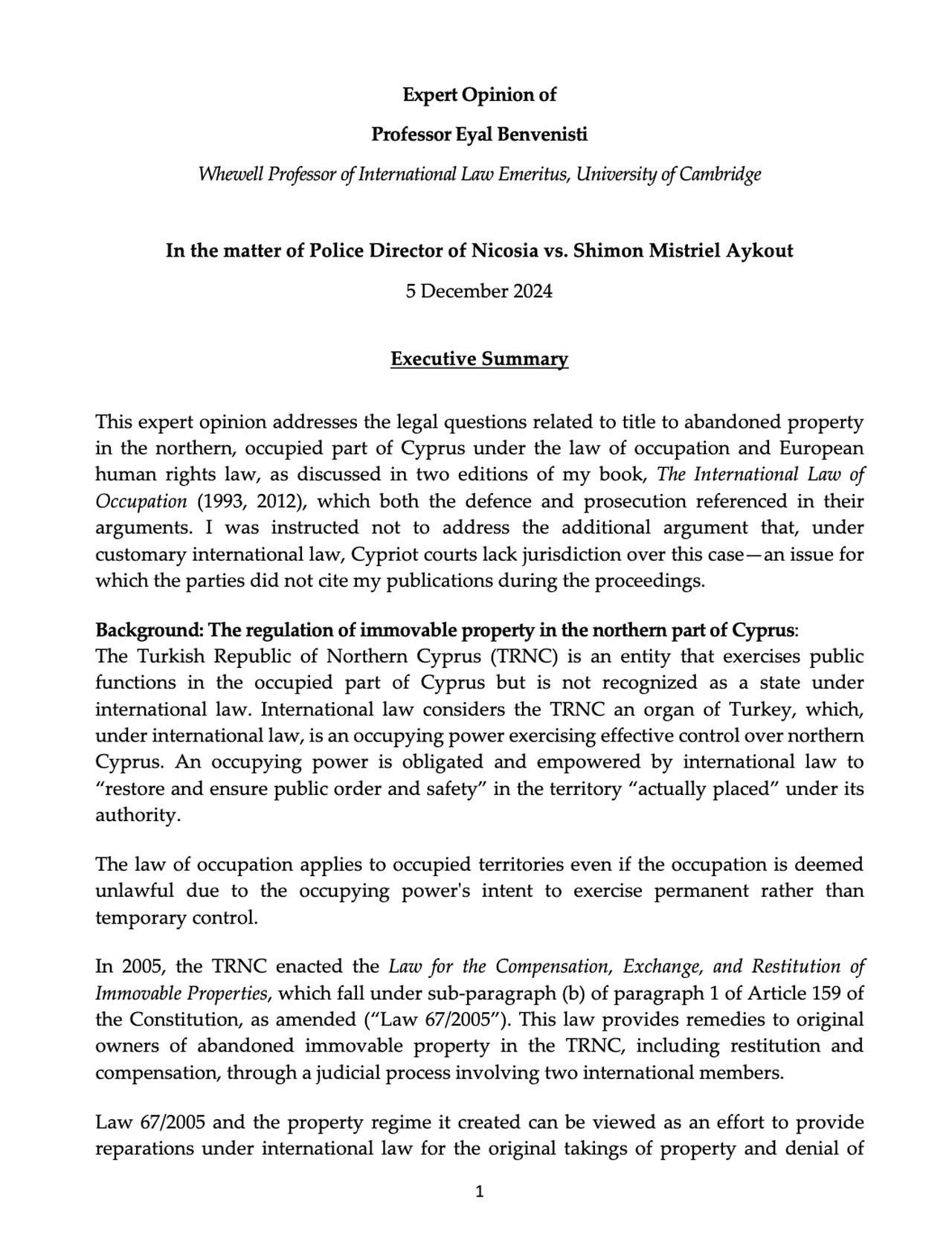
Aykut’s case is not isolated. Several other foreigners have faced legal proceedings in the GCA for similar charges related to property development in the north.
Hungarian and German nationals have recently been investigated or sentenced, while Turkish nationals face arrest warrants in connection with projects in the Famagusta district.
Simon Aykut’s son, Afik, and their lawyer aim to base their case against GCA on an expert legal opinion submitted to the European Court of Human Rights by Cambridge Professor Eyal Benvenisti.
Afik’s chief adviser, Ron Berkman, stated: “This case is a turning point and could potentially open the door for thousands of people to sue Southern Cyprus for their property investments and the billions of euros in damages caused to the Northern Cyprus economy.”
During Israel’s latest assault on Gaza, Aykut and his son Afik became symbolic figures regarding the accusations that they “secretly buy up the TRNC for making Israeli settlements.”
In an interview with a Turkish media channel, Aykut vehemently rejected these accusations, saying, “I am offended by such allegations. I have nothing to do with Zionism. Israelis are the least represented among my buyers—of the 3,500 properties I have sold, only 105 went to Israelis. Most of my clients are Russian, Ukrainian, or Iranian.”
His son, a graduate of Tel Aviv University, also became a citizen of the Turkish Republic of Northern Cyprus, just like his father.
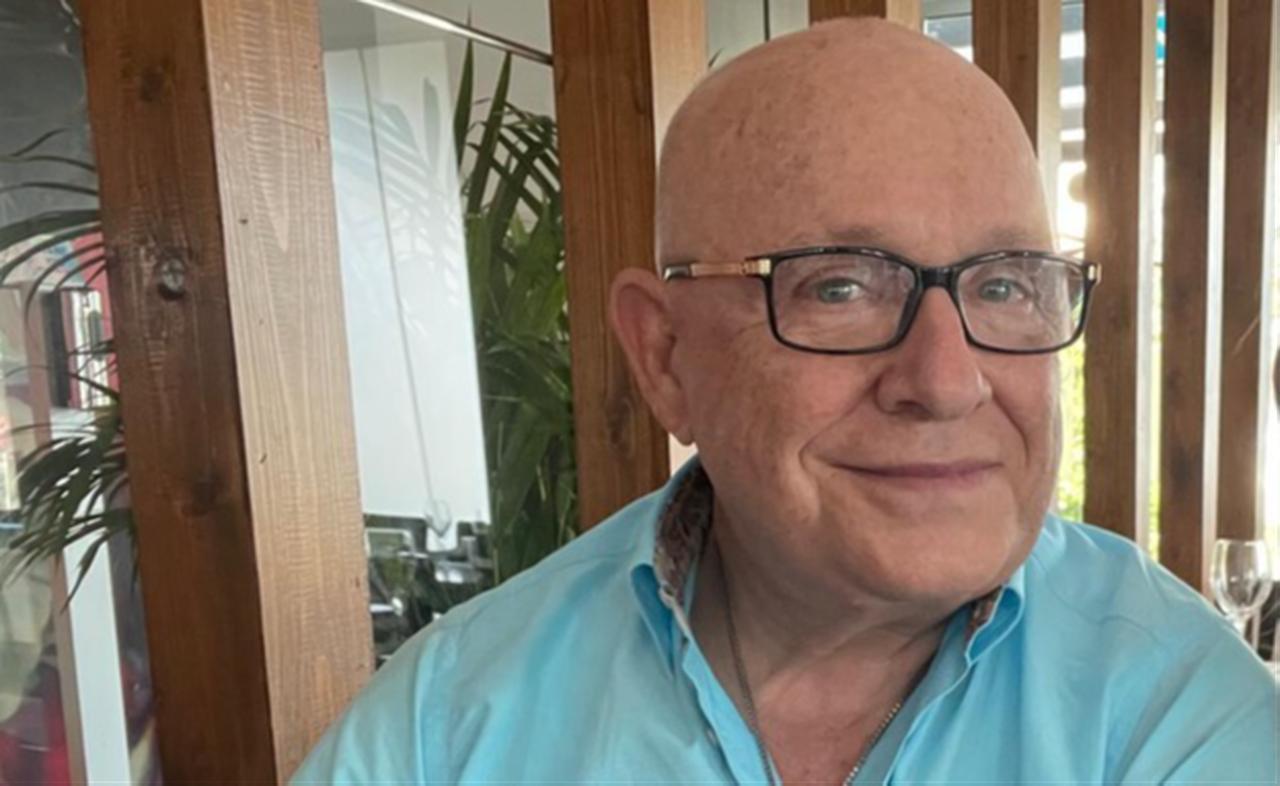
Turkish Cypriot leader Ersin Tatar denounced the arrests as acts of terrorism, drawing parallels with the violence Turkish Cypriots endured in the 1960s.
Meanwhile, the finance minister, Erhan Arikli, went further, calling for revenge.
A story that began in Bergama now finds Simon Mistriel Aykut, a former Turkish citizen, receiving diplomatic support from the TRNC for being imprisoned in a Greek Cypriot jail.